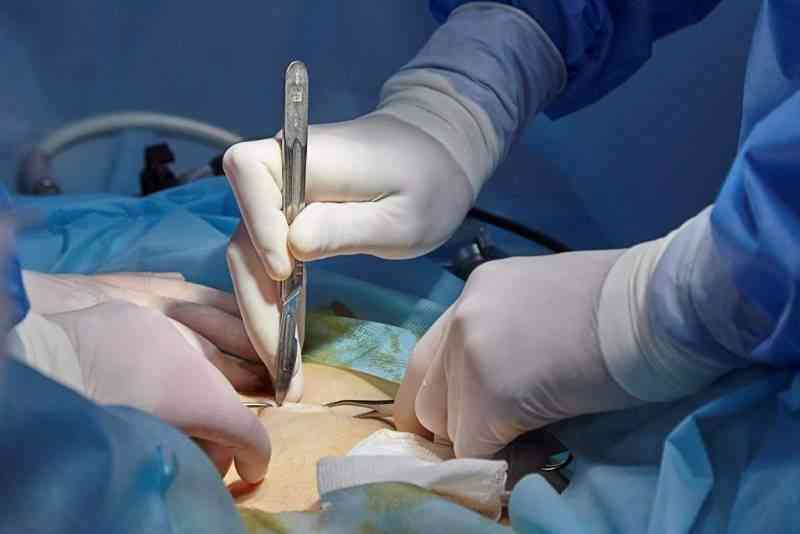
Urologic Oncology Department
The Urologic Oncology Department at N. Lopatkin Scientific
Research Institute of Urology and Interventional Radiology specializes in treating patients with complex clinical cases from any Russian region, as well as from nearby and distant countries

- Multidisciplinary approach
- Organ-preserving treatment
- Improving the quality of life
- Compulsory medical insurance, high-tech medical care (quota), voluntary medical insurance
Main Areas of Activity
Methods of Treating Male Reproductive Cancer
The extensive experience of specialists in the Urologic Oncology Department at N. Lopatkin Scientific Research Institute of Urology and Interventional Radiology allows them to confidently and effectively use innovative methods for diagnosis and treatment of male reproductive cancer. One of the most effective diagnostic methods for prostate cancer is targeted fusion biopsy of the prostate. Among the innovative treatment methods the prostate cancer, the most effective are: retropubic/laparoscopic/perineal radical prostatectomy with extended lymphadenectomy, nerve-sparing radical prostatectomy, laparoscopic pelvic lymphadenectomy, low-dose brachytherapy with iodine-125, and photodynamic therapy (PDT).
Testicular cancer (consultation with andrologists): orchifunicolectomy (with the possibility of endoprosthetics) combined with chemotherapy, retroperitoneal nerve-sparing lymphadenectomy, laparoscopic retroperitoneal nerve-sparing lymphadenectomy.
Penile cancer: resection/amputation/extirpation of the penis, inguinal/ilio-inguinal lymphadenectomy.
Methods of Treating Urinary System Cancer
Transurethral resection of the bladder (TUR), TUR with photodynamic diagnostics (PDD) and/or PDT; bladder resection, radical cystectomy with various options for urinary diversion
Organ-preserving treatment – kidney resection/laparoscopic kidney resection (single, simultaneous resection for bilateral kidney involvement, multiple kidney tumors); nephrectomy with extended lymphadenectomy/thrombectomy from the inferior vena cava/resection of adjacent organs; laparoscopic nephrectomy; radiofrequency thermal ablation of kidney tumors
laparoscopic radical nephroureterectomy with bladder resection, lymphadenectomy; organ-preserving treatment involving ureter and bladder resection for small tumors in the lower third of the ureter.
The department has developed and patented a method of organ-preserving treatment for urothelial cancer of the pelvis of a single kidney with percutaneous access and adjuvant intracavitary chemotherapy combined with low-intensity laser radiation.
adrenalectomy, including resection of adjacent organs, laparoscopic adrenalectomy, adrenal resection
Breakthrough Technologies in the Treatment of Men
The department applies breakthrough methods for treating comorbid conditions in men with cancer, significantly improving their quality of life: benign prostatic hyperplasia (plasma ablation of the prostate, transurethral resection of the prostate). For large adenomas that are not treatable by endoscopic methods, experienced surgeons have developed and implemented an original method of laparoscopic adenomectomy, which has shown good functional results in terms of urinary incontinence.
laser ablation of the urethra, internal optical urethrotomy
Sling system placement, artificial bladder sphincter.
The team of specialists has gained a lot of clinical experience with sling surgeries for severe incontinence, and has developed an original treatment method for incontinence combined with urethral stricture (simultaneous sling and intraurethral spiral/stent placement)
Reconstructive-Plastic Surgery
One of the department’s priorities is reconstructive plastic surgery, which restores physiological function to an organ fully or partially lost for various reasons during the treatment of malignant tumors in other areas (all types of ureter, bladder, and urethra reconstruction, treatment of fistulas). Special emphasis is placed on reconstructive surgery of female pelvic organs aimed at treating stress urinary incontinence using sling systems and correcting pelvic organ prolapse with mesh implants.
It is important that the treatment of cancer patients is often multi-component and multi-stage. Therefore, when problems such as urinary outflow obstruction arise in the upper or lower urinary tract, the specialists perform percutaneous kidney drainage, bladder drainage through the abdominal wall (epicystostomy), or place ureteral stents.
About the Department
The Urologic Oncology Department at N. Lopatkin Scientific Research Institute of Urology and Interventional Radiology opened in 2010. Each year, the department’s specialists perform around 1,400 surgical procedures, including over 150 reconstructive plastic surgeries. Qualified collaboration with other specialists, including nephrologists, urolithiasis treatment specialists, and endourologists, provides extensive opportunities for complex and unique treatment and rehabilitation of patients with serious comorbidities, such as chronic kidney disease, acute renal failure, and urolithiasis. The department has 25 beds. The staff conducts outpatient consultations, preoperative counseling, and dynamic post-operative monitoring.







